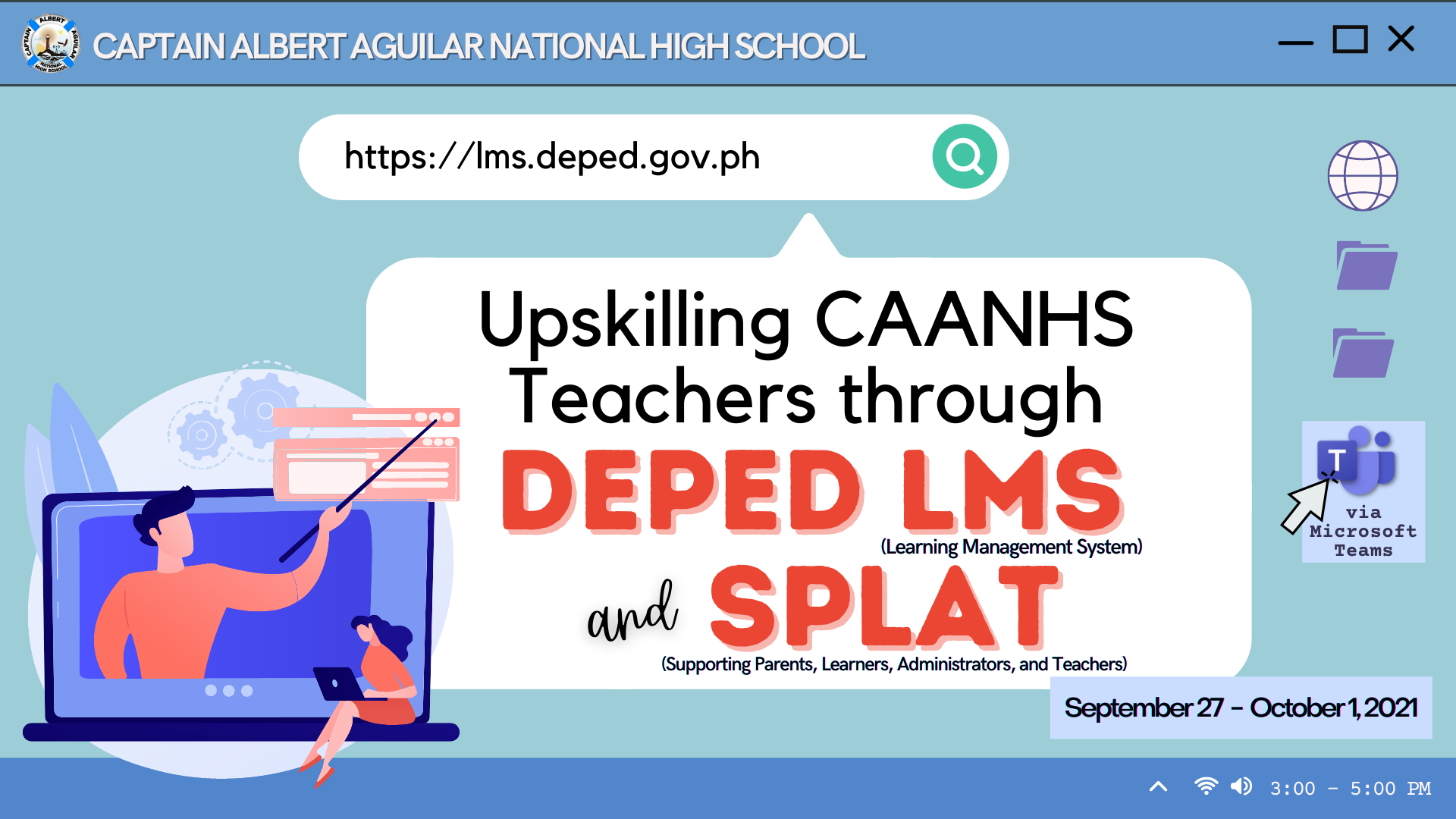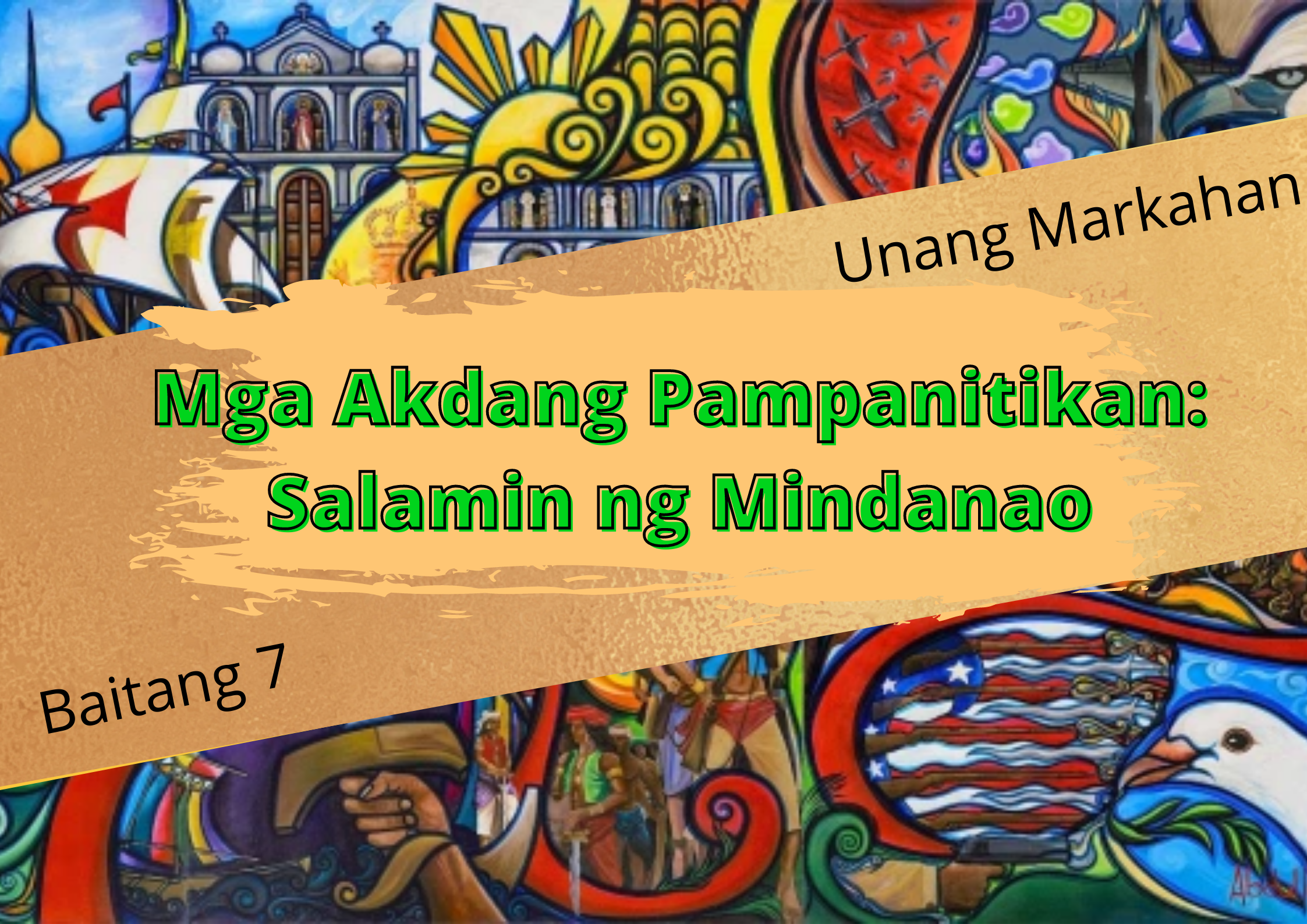
Mga Akdang Pampanitikan: Salamin ng Mindanao
PAMANTAYANG PANGNILALAMAN: Naipamamalas ng mag-aaral ang pag-unawa sa mga akdang pampanitikan ng Mindanao
PAMANTAYAN SA PAGGANAP: Naisasagawa ng mag-aaral ang isang makatotohanang proyektong panturismo
PANITIKAN: Kuwentong-bayan, Pabula, Epiko, Maiking kuwento, Dula
GRAMATIKA: Mga Pahayag na Nagbibigay ng mga Patunay
Mga Eskpresyon ng Posibilidad
Pang-ugnay na Ginagamit sa Pagbibigay ng Sanhi at Bunga
Pang-ugnay na Ginagamit sa Panghihikayat
Pang-ugnay na Ginagamit sa Paghahayag ng Saloobin
Mga Retorikal na Pang-ugnay
Mga Pangungusap na Walang Tiyak na Paksa
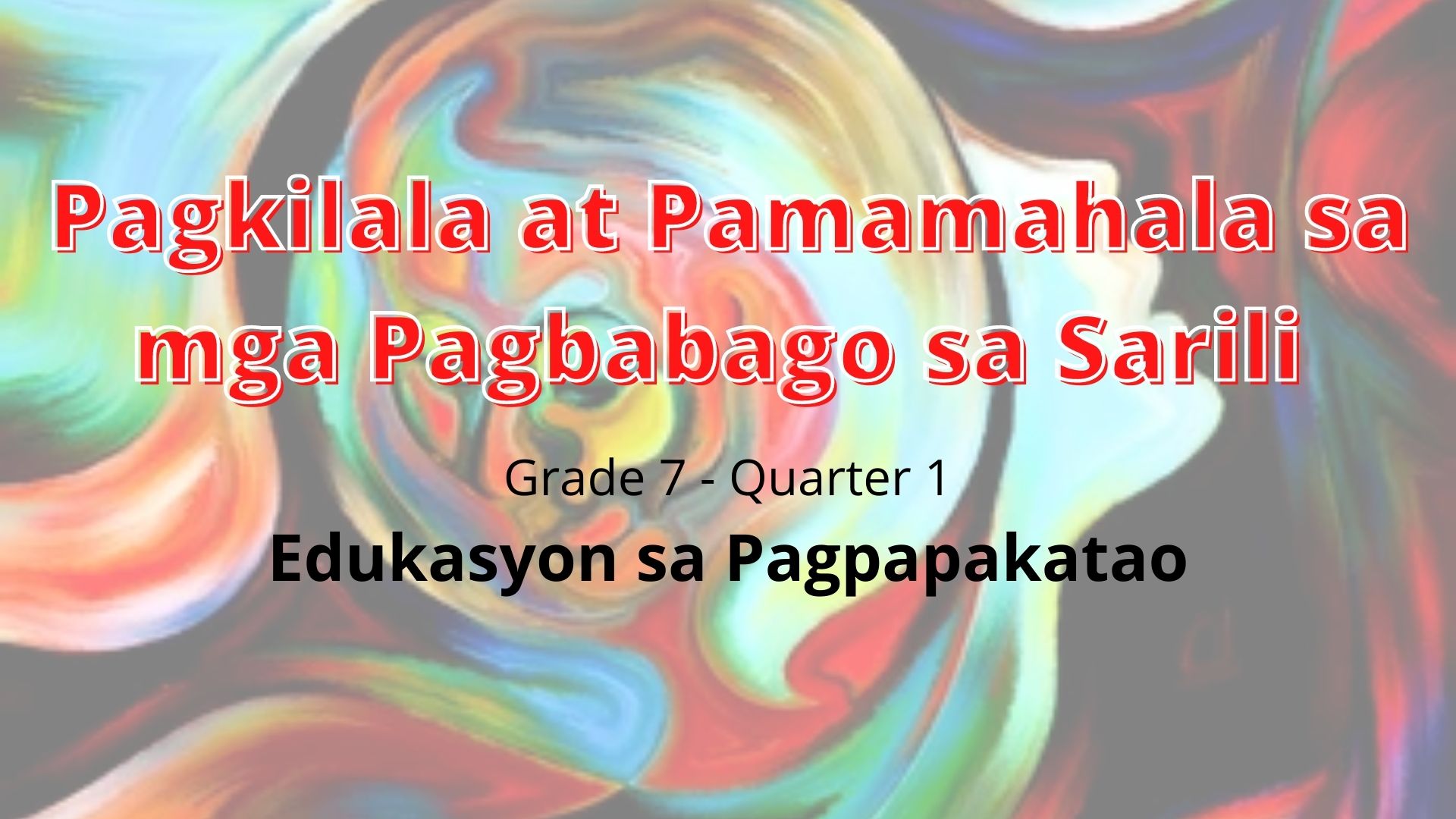
Pagkilala at Pamamahala sa mga Pagbabago sa Sarili
Naipamamalas ng mag-aaral ang pag-unawa sa mga angkop na inaasahang kakayahan at kilos sa panahon ng pagdadalaga / pagbibinata,
kakayahan at talento, hilig at pagkatao ng tao tungo sa pagtupad ng mga tungkulin sa sarili, sa kapwa, sa bansa/ daigdig at sa Diyos at
pagtatakda ng mithiin upang mapanagutan ang kahihinatnan ng mga pasya at kilos.
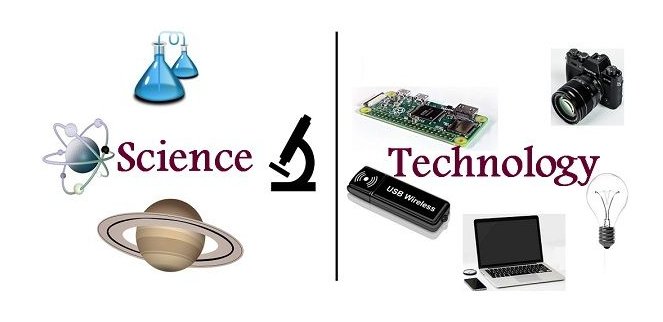
SCIENCE AND TECHNOLOGY 9
- The terms science and technology, are often pronounced in the same breath and used as synonyms, because they are closely intertwined, that their difference is many a time ignored. Science is all about acquiring knowledge of the natural phenomenon along with the reasons for such phenomenon, like Why the sky is blue? Why are leaves green? Why rainfall occurs? What are the colours of the rainbow? How do plants make their food? And so forth. When this knowledge is put to practice, to solve human needs or problems, it is termed as technology. So, in short, science deals with theories, principles and laws whereas technology is all about products, processes and designs. In this article excerpt, we are going to discuss all the important differences between science and technology.
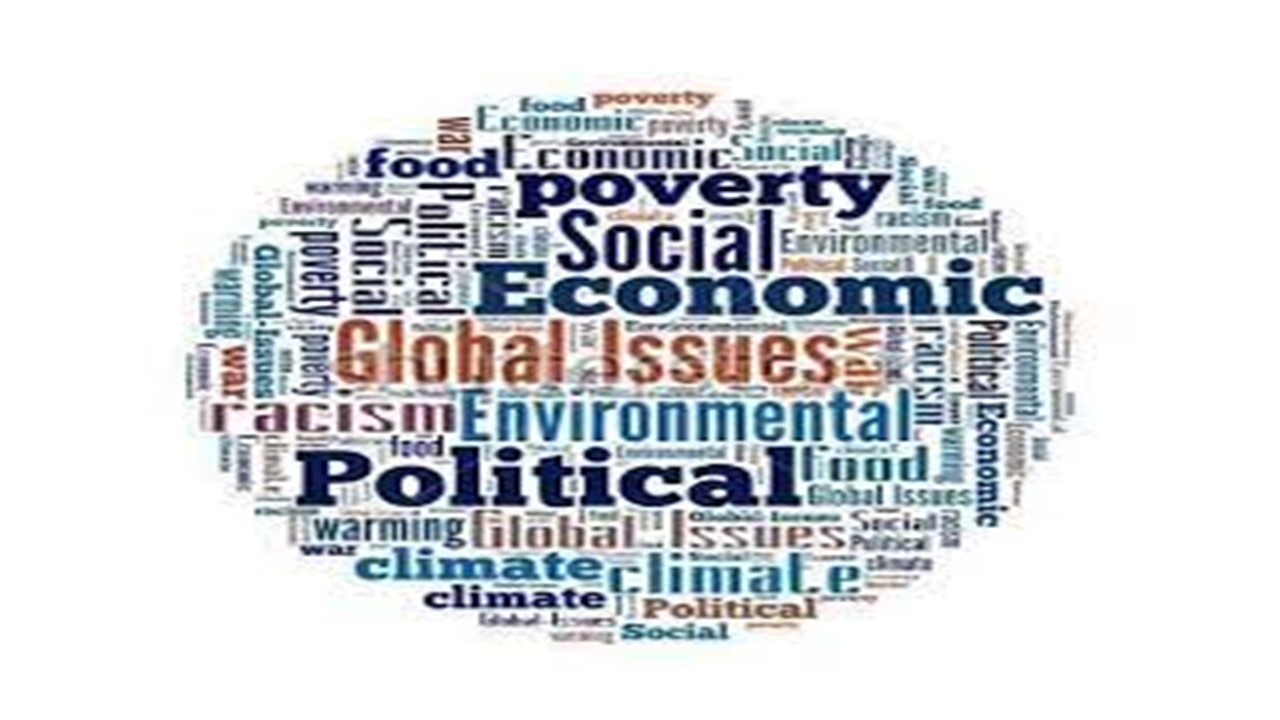
AP 10 CONTEMPORARY ISSUES
Contemporary Issues introduces students to various issues facing the world today. Students will explore global economic systems, human rights, world health, environmental issues, political issues, and the role of the Filipino learners in a changing world.

Technology and Livelihood Education
Cooking, cookery, or culinary arts is the art, science, and craft of using heat to prepare food for consumption. Cooking techniques and ingredients vary widely, from grilling food over an open fire to using electric stoves, to baking in various types of ovens, reflecting local conditions.
Types of cooking also depend on the skill levels and training of the cooks. Cooking is done both by people in their own dwellings and by professional cooks and chefs in restaurants and other food establishments.
Preparing food with heat or fire is an activity unique to humans. It may have started around 2 million years ago, though archaeological evidence for it reaches no more than 1 million years ago.
The expansion of agriculture, commerce, trade, and transportation between civilizations in different regions offered cooks many new ingredients. New inventions and technologies, such as the invention of pottery for holding and boiling water, expanded cooking techniques. Some modern cooks apply advanced scientific techniques to food preparation to further enhance the flavor of the dish served
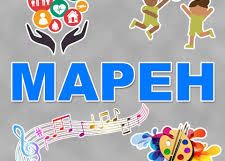
MUSIC ARTS P.E HEALTH GR.7
MUSIC
A component of MAPEH which aims to discuss fundamentals and theories that every student should learn through singing, listening, reading, playing,
and creating. This also brings the students to a deeper understanding and greater knowledge of the Philippine music history.
ARTS
Component of MAPEH that needs to be acquired, developed, and appreciated. This component focuses on how the elements of arts are organized, the
functions of art, the mediums and techniques used, and history of art.
PHYSICAL EDUCATION
This component allows students to become more equipped to learn about body mechanics, good posture, and different games and sports activities.
Values like cooperation, teamwork, concern for others, sportsmanship and self-confidence are also focused. This part of MAPEH program enhances the
knowledge and skills of students in different areas of Physical Education promoting active lifestyle among students.
HEALTH
This MAPEH component gives the students a direct knowledge in stages of growth and development, availability and functions of first aid services,
different health disorders and nutritional values for a adopting a healthy lifestyle.
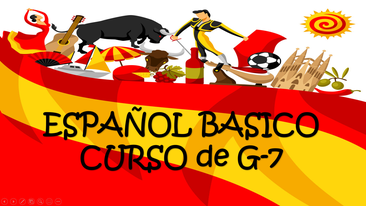
305431 SPFL SPANISH G7
SPFL SPANISH is the Special Program in Foreign Language (SPFL). As directed, public and private secondary schools are encouraged to offer foreign languages such as Spanish, Mandarin, Nihongo, Korean, German and French as CP-TLE Subject. SPFL aims to train students to acquire the skills of listening, reading, writing, and speaking of particular foreign language in order for them to develop communicative competence. It is offered to Grade 7-10 learners who have shown prophecy in their English subject, and who are interested and capable of learning a foreign language.
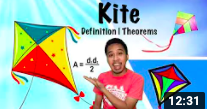
Grade 9 Mathematics
This course provides discussion, exercises on the lessons in Grade 9 Mathematics

G9 ICT CSS Q1
This is an introductory course that leads to a Computer Systems Servicing National Certificate Level II (NC II).
It covers seven (7) common competencies that a
student ought to possess: 1) application of quality standards, 2) computer operations; 3) performing mensuration and calculation; 4) preparation and interpretation of technical
drawing; 5) the use of hand tools; 6) terminating and connecting electrical wiring and electronics circuits; and 7) testing electronics components; and four (4) core competencies,
namely, 1) installing and configuring computer systems, 2.) setting up computer networks, 3) setting up computer servers, and 4) maintaining and repairing computer systems
and networks.
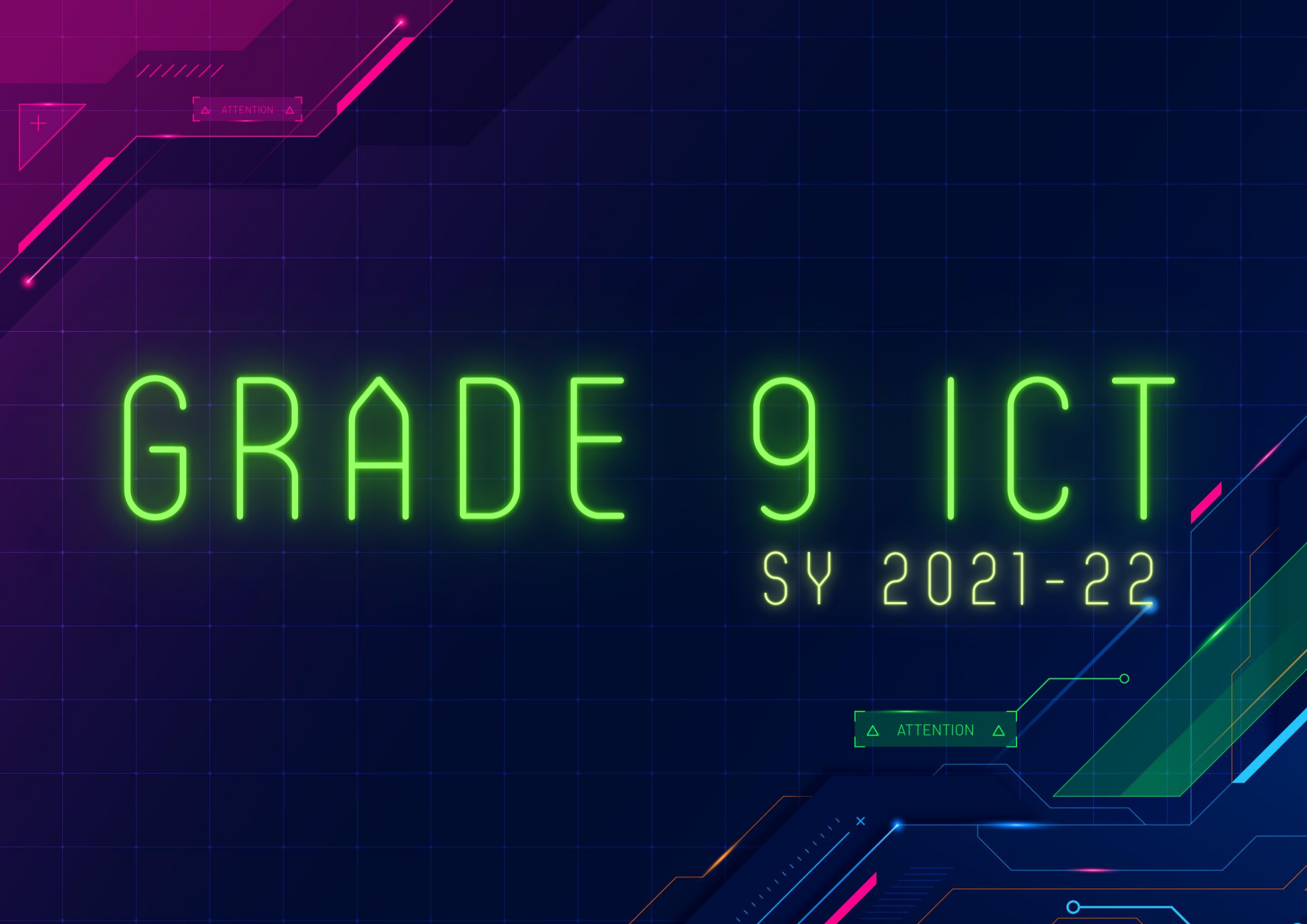
LMS DEMO FOR SPEAKER Grade 9 ICT
This is an introductory course that leads to a Computer Systems Servicing National Certificate Level II (NC II). It covers seven (7) common competencies that a
student ought to possess: 1) application of quality standards, 2) computer operations; 3) performing mensuration and calculation; 4) preparation and interpretation of technical
drawing; 5) the use of hand tools; 6) terminating and connecting electrical wiring and electronics circuits; and 7) testing electronics components; and four (4) core competencies,
namely, 1) installing and configuring computer systems, 2.) setting up computer networks, 3) setting up computer servers, and 4) maintaining and repairing computer systems
and networks.
